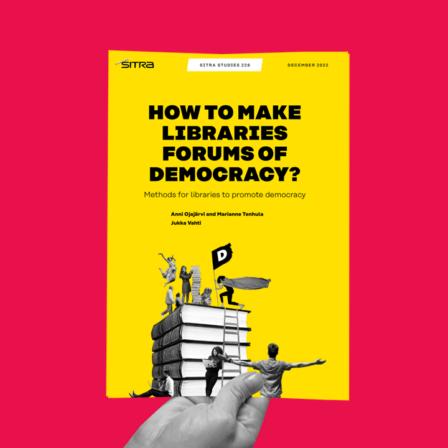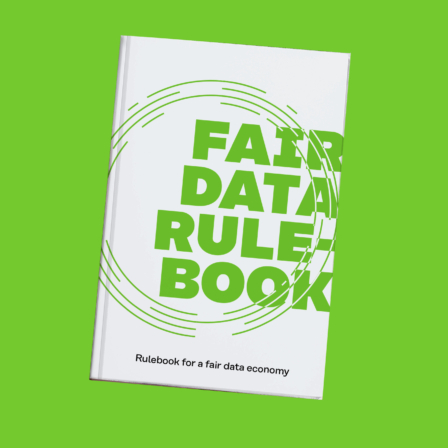Europeans actively make use of digital services, and the authorities collect the highest quality data in the world, and yet, when it comes to the utilisation of this data, we lag behind our competitors. Fortunately, there are exceptions, such as the financial and telecommunications sectors. Nordic companies have excelled in these sectors and have even been innovators.
Sitra interviewed veterans representing these sectors to gather information on the development of data-based business, success cases, and pitfalls to be avoided. The insights gained have been compiled into a publication entitled The future of the European data economy at stake – Lessons learned from the telecommunications and financial markets, which provides tools for building a fair data economy.
“We challenge social actors and companies to get involved in a discussion on building a governance model that is fair for everyone. The data economy is an enormous opportunity for Europe, ranging from health care to climate protection and from food safety to smart transport systems, says Antti Kivelä, Director of the Capacity for renewal theme at Sitra.
The governance model helps build trust – multi-layered regulation must be avoided
The financial and telecommunications sectors have managed, over decades, to create a management model based on trust, within which data flows between different actors and different countries. Consumers also trust the established services provided by well-known companies. At the same time, young, innovative companies have conquered the market with new services by collaborating with large companies.
“Regulation has influenced the development of business in both sectors for decades. The sectors have also agreed among themselves on a number of standards and operating models. These measures have enabled the emergence of compatible services and products and on the market,” says Risto Tornivaara, Senior Adviser at Sitra.
Based on the interviews conducted, we can say that the attractiveness of services and the fact that all parties benefit from the use of data in the form of better products and services are important factors in building trust. The authorities can open up new opportunities and provide support by means of legislation and regulation, but it is ultimately the responsibility of companies themselves to develop services.
On the other hand, the challenges are related to the heterogeneousness of the EU market and the multi-layered nature of regulation. Due to country specific differences, companies cannot launch services and operating models for the entire internal market at one time.
Europe’s competitiveness in the data economy is weak – common policies are urgently needed
In February 2020, the European Commission published an ambitious strategy defining steps towards a European single market for data. The aim is to promote the availability and sharing of data to enable companies, researchers and the public sector to make better use of the collected data as a fuel for new services and innovations.
“The creation of a data market requires cooperation at many different levels. At the same time, it must be ensured that regulation, for example, does not weaken innovation capacity or cause unreasonable financial harms for operators,” Tornivaara stresses.
In 2018, Sitra launched the IHAN project that promotes a fair data economy. A working paper entitled The future of the European data economy at stake initiates debate related to the data economy management model, which should be explored in more detail.
Load and read!
Sitra Working Paper
The future of the European data economy at stake
– lessons from telecom and financial markets
Eero Raunio, KPMG Advisory
1.10.2020

















Recommended
Have some more.